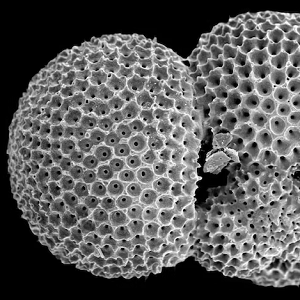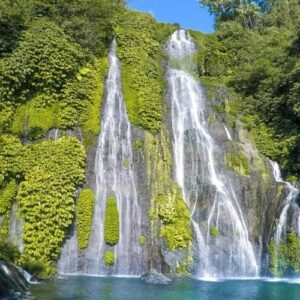Super Salty Water from Indian Ocean Helped End Ice Ages
Cardiff University
An international team of scientists claim to have discovered the source of warm super salty water that rushed up the Atlantic Ocean 15,000 years ago, ushering in the end of the last ice age.
Their study traces the history of ocean temperature and salinity during each ice age cycle of the last 1.5 million years.
The team of scientists from Cardiff University, the University of St Andrews and universities overseas, measured chemical fingerprints locked in microscopic fossil shells extracted from a 40-metre-long core of deep-sea mud to reconstruct the temperature and salinity of the seawater in which the shells grew.
Their findings, published in Nature, reveal that during the peak of each ice age, waters in the Indian Ocean became super charged with salt driven by a restriction of fresh-water currents that usually enter from the Pacific.
Lead author Dr Sophie Nuber from National Taiwan University, who completed her PhD at Cardiff University, said: “Under the hot sunshine of the subtropics, seawater evaporates and gets saltier.
“Typically, in the Indian Ocean this salt is diluted by fresher waters flowing in from the Pacific, but during the ice ages this current was cut off by a drop in sea level, so the salt could build up undiluted.”
The researchers found that sea levels, which fell globally by as much as 120 metres during the ice ages as water evaporated from the ocean was locked up in giant ice sheets, can substantially alter the oceanic connection between the Pacific and Indian Oceans.
This process would have repeatedly cut off the freshwater currents that snake into the Indian Ocean through the Indonesian archipelago, as the seafloor in this region became land when water levels fell, the study suggests.
As a result, the salty waters remained trapped in the Indian Ocean until the end of the last ice age, when a shift in winds and currents allowed them to burst into the Atlantic helping to re-establish the current system that warms the UK and Northwest Europe.

The international team of researchers measured chemical fingerprints locked in microscopic fossil shells extracted from a 40-metre-long core of deep-sea mud.
More on : https://www.cardiff.ac.uk/news/view/2732136-super-salty-water-from-the-indian-ocean-helped-end-ice-ages,-study-suggests?utm_source=miragenews&utm_medium=miragenews&utm_campaign=news








